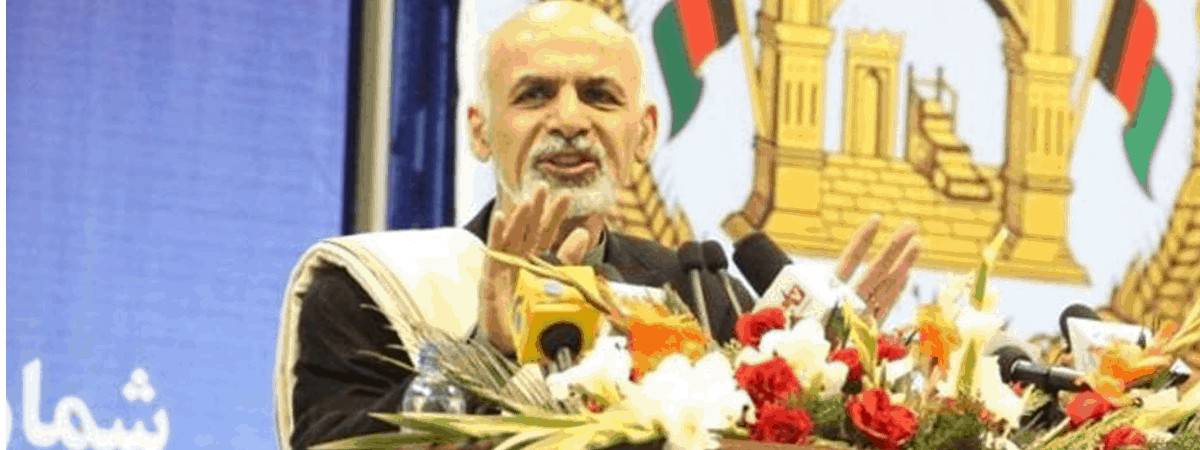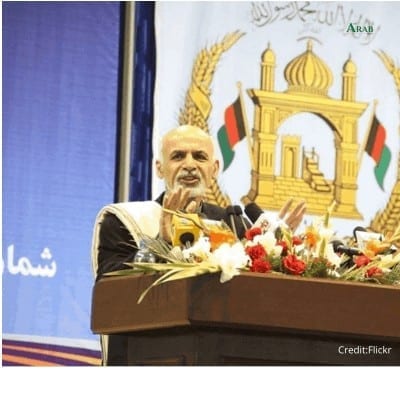Ghani and Abdullah declare themselves presidents.

Afghanistan is plunging into a new institutional crisis, with Ashraf Ghani and Abdullah Abdullah sworn in as presidents on Monday.
Head of State Ashraf Ghani and his main opponent Abdullah Abdullah were both sworn in on Monday as presidents of Afghanistan, plunging the country into a new institutional crisis that will delay the start of unprecedented peace talks with the Taliban.
Explosions were heard during the ceremonies in Kabul: the jihadist Islamic State group claimed to have fired ten rockets. The Interior Ministry counted four projectiles and a slightly injured policeman.
This incident underlines that insecurity remains very high despite the peace process which has led to the signing, on February 29 in Doha, of a historic agreement between the United States and the Taliban after 18 years of war. .
The text calls for the complete withdrawal of American and foreign forces from Afghanistan within 14 months, in exchange for guarantees from the Taliban in the fight against terrorism and the launch of unprecedented direct negotiations between the Afghan government and the rebels.
But if the US military announced on Monday that it had begun its gradual withdrawal, to bring its strength from about 13,000 soldiers currently to 8,600 within 135 days, the double inauguration ceremony which was held at the same time in Kabul stands as a new obstacle to peace negotiations. Their start, scheduled for Tuesday, will no doubt be postponed, without any new date having been announced.
I am not wearing a bulletproof vest, only my shirt, and I will stay even if I have to leave my head there!” Launched Ashraf Ghani without leaving the platform, after having sworn to “obey and protect” Islam and to “respect and supervise the application of the Constitution”. “There are fundamental and invisible links between the TalibaFONDA ISIS,” the acronym used to designate IS, he added, wearing a long white turban, in front of many diplomats.
A few minutes later, Abdullah Abdullah, who officially lost the September poll, also declared himself president of Afghanistan in another wing of the presidential palace. “The Afghan people have entrusted me with a huge responsibility,” said the chief executive of the previous government of national unity.
The scenario recalls the worst moments of the 2014 election, which the same two protagonists claimed to have won. The crisis then lasted three months and was only resolved through American mediation. This time, the moment could not be more badly chosen: the division within the Afghan executive can only weaken Kabul and strengthen the positions of the Taliban.
“Nothing is more important to these slaves than their personal interests,” quipped insurgent spokesman Zabihullah Mujahid, interviewed by AFP.
Washington, for its part, called for the “formation of an inclusive government”. “We firmly oppose any act aimed at forming a parallel government,” said US diplomat Mike Pompeo, assuring “to work towards an agreement” Ghani-Abdullah.
Due to their rivalry, Kabul has yet to put together a team of negotiators to dispatch to these inter-Afghan talks. In addition, President Ghani had opposed, in recent days, one of the clauses negotiated between the Americans and the Taliban: the release of up to 5,000 insurgent prisoners in exchange for that of up to 1,000 members of the Afghan forces.
Mike Pompeo “welcomed” some soothing statements by the Afghan head of state on Monday that negotiations would continue “over the next two weeks to reach an agreement on an inclusive government” and that a decree would rule on Tuesday release of Taliban prisoners and training of a national team for inter-Afghan negotiations. Abdullah Abdullah announced that “appointing a team of negotiators” would be one of his priorities.
“The Taliban will tell the government team to solve their internal problems and then come and speak,” analyst Atta Noori predicted, interviewed by AFP. “Unity is their only option if they want to win at the bargaining table.”
The final results of the presidential election were not announced until February, due in particular to the filing by the candidates of 16,500 complaints for irregularities.
Ashraf Ghani obtained 50.64% of the 1.8 million votes taken into account. Abdullah Abdullah, who won only 39.52% of the vote, called these results “national betrayal”. Meanwhile, fighting has resumed in the countryside since the insurgents ended a partial nine-day truce on March 2.

